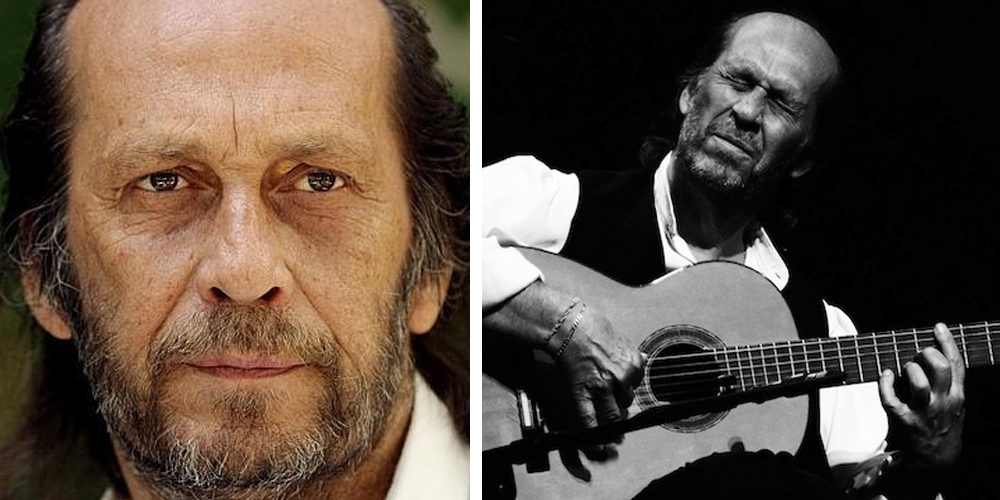Sara Baras regresa a Londres con su espectáculo “Alma”
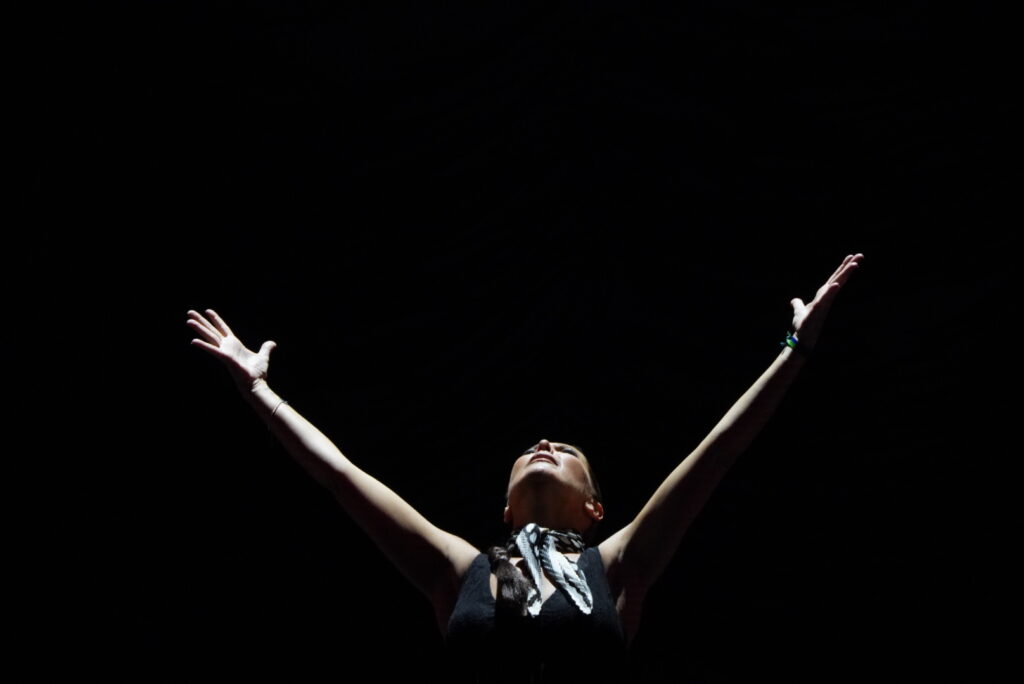
Sara Baras, leyenda viva del mundo del flamenco, inauguró ayer una nueva edición del Flamenco Festival en el teatro Sadler’s Wells de Londres, con su espectáculo “Alma”, que representará hasta el próximo domingo.
Baras ha pasado los últimos 30 años construyendo una carrera internacionalmente elogiada como bailarina, directora y coreógrafa.
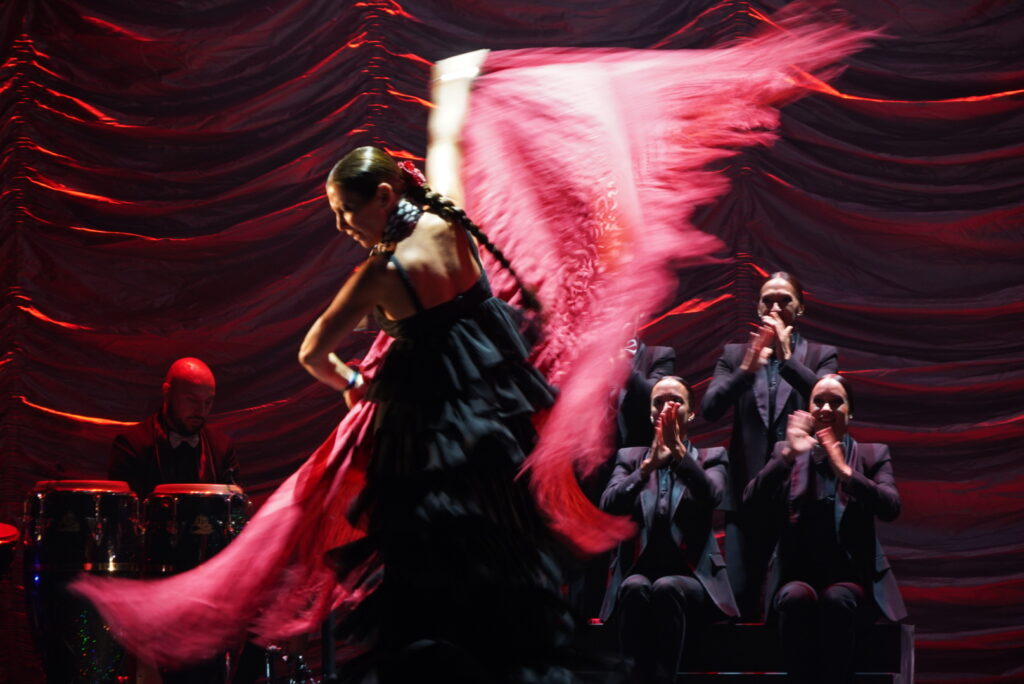
Ganadora del Premio Olivier 2020 a la Mejor Danza, así como de varios de los máximos galardones de la danza española, Baras infunde a las formas clásicas (sobre todo a la farruca) una poderosa sensibilidad moderna.
La española regresa a Londres por primera vez desde su aclamada obra de larga duración “Sombras” en 2019, Baras elabora una carta de amor a los orígenes del flamenco con Alma.
Mezclando elementos tradicionales del flamenco con ritmos de bolero, Baras y su compañía ofrecen una noche transformadora de zapateado propulsivo, formidable musicalidad y actuaciones inolvidables.
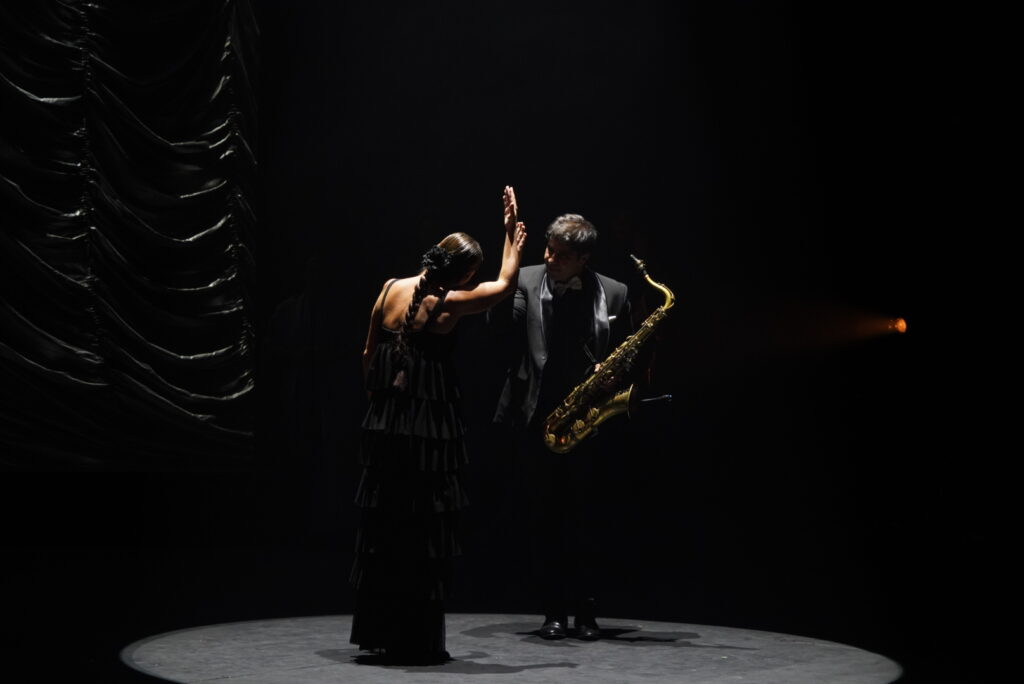
Sara Baras es una de las representantes de flamenco más conocidas en el mundo de hoy. Su carrera artística comenzó hace más de 30 años y la llevó a actuar en teatros de todo el mundo. En 1998 creó su propia compañía de baile, Ballet Flamenco Sara Baras.
Hasta la fecha, ha realizado 14 espectáculos, todos ellos creados y coreografiados por ella misma: ‘Sensaciones’ (Sensaciones); ‘Cádiz-La Isla’; ‘Sueños’ (Sueños); ‘Sueños de Sara’ (Sueños de Sara); ‘Juana la Loca’; ‘Mariana Pineda’; ‘Sabores’ (sabores); ‘Baras — Carreras’; ‘Carmen Esencia’ (esencia); ‘La Pepa’; ‘Medusa’, la guardiana; ‘Voces’; y su flamante especáculo ‘Sombras’ (Shadows).
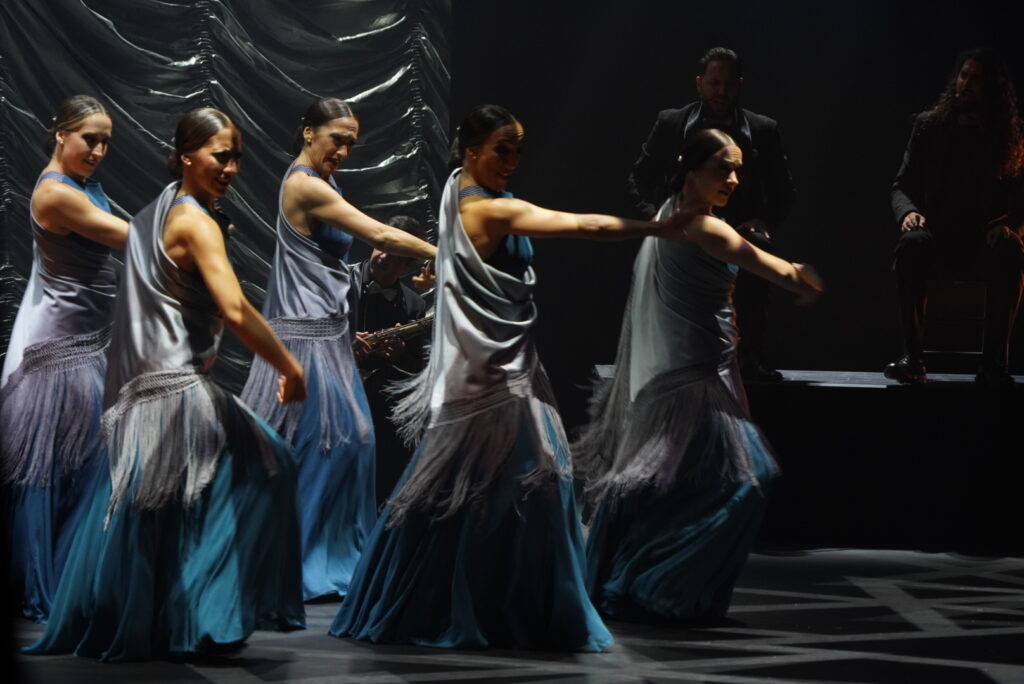
5 cosas que quizá no supieras sobre Paco de Lucía / 5 things you may not have known about Paco de Lucía
Paco de Lucía es uno de los músicos españoles más conocidos del mundo, y todavía es el primer nombre que viene a la mente cuando se habla de flamenco. Pero el artista gaditano es mucho más que flamenco; aquí 5 apuntes para que lo conozcas un poco mejor antes del concierto homenaje que se le dará este miércoles 9 de diciembre en Barbican:
- De madre portuguesa, su nombre completo era Francisco Sánchez Gomes. Como en su pueblo varios otros niños se llamaban Francisco (Paco) y tocaban la guitarra, pasó a ser Paco de Lucía (Paco, el de Lucía) para que se le pudiera distinguir de los demás.
- Igual que ocurriera en su momento con Wolfgang Amadeus Mozart, fue el padre de Paco de Lucía quien le encaminó hacia la música profesional desde los 5 años, siendo bastante estricto en la metodología de formación del muchacho y haciéndole practicar más de 5 horas diarias en las épocas intensas.
- Las primeras salidas al extranjero de Paco de Lucía le abrieron a nuevos géneros musicales y propiciaron su interés por otros ritmos, en especial el jazz.
- Fue el creador del llamado “nuevo flamenco”, que incorporaba elementos de otros géneros. Su contribución tuvo muchos detractores entre las filas del flamenco clásico.
- Paco de Lucía fue el primer abanderado comercial del flamenco en el mundo, y el responsable de que esta seña de identidad andaluza se propagara más allá de las fronteras españolas.
Aunque en 2004 redujo notablemente la frecuencia de sus apariciones públicas, ha seguido dando conciertos, especialmente en España y en Alemania, hasta unos meses antes de fallecer el 25 de febrero de 2014.
La comunidad de Barbican prepara un concierto homenaje a Paco de Lucía, este miércoles 9 de dicembre, con la actuación de algunos de los artistas que compartieron escenario y vida con el guitarrista flamenco, así como nombres relevantes en la escena musical internacional. Los detalles sobre el evento están disponibles en este enlace.
_______________________________
Paco de Lucia is one of the world’s most renowned Spanish musicians, and his is still the first name that comes to mind whenever the topic of flamenco is brought up. But the Cadiz region born artist is more than a simple flamenco guitarist; here are 5 details to get to know him a little better. before the Paco de Lucia tribute concert, this coming Wednesday 9 December at Barbican:
- Born to a Portuguese mother, his full name was Francisco Sanchez Gomes. Many other children in the small town where he lived were called Francisco (Paco) and played the guitar. He became Paco de Lucía (Paco, the son of Lucia) so that he could be told apart form the other kids.
- As it had happened with Wolfgang Amadeus Mozart back in the days, it was Paco de Lucia’s father who led the boy to the guitar at age 5. His father was quite strict in everything related to methodology, and the boy used to study up to and over 5 hours a day during intense times.
- The first few musical ventures abroad opened Paco de Lucia up to unheard of musical genres and fostered his interest in other rhythmic solutions, especially jazz.
- He was the creator of «new flamenco», a fusion of classic flamenco sounds with elements of other musical genres. His contribution to the genre had many detractors among the ranks of classic flamenco.
- Paco de Lucia was the first flamenco artist to make flamenco known and broadly available to listeners worldwide, and ultimately the first person responsible for taking this Andalusian signature sound beyond Spanish borders.
Although Paco de Lucia significantly reduced the frequency of his public appearances in 2004, he continued performing, especially in Spain and Germany, until a few months before his death on February 25, 2014.
The Barbican community prepares a tribute to Paco de Lucia this coming Wednesday 9 December, with performances by some of the artists who shared stage with the flamenco guitarist, as well as other leading names in the international music scene. Details about the event are available on this link.
A homage to Britain’s flamenco pioneers
PASSION and flamenco go together like pan con tomate, so it’s no surprise to hear producer-director Anna Holmes describe her film Spanish Steps: Flamenco in a Foreign Land as “a passion project”.
The making of this documentary has been a labour of love for the past 18 months or so after Anna was unable to secure funding from production companies. But thanks to a lifelong love of dance, plus the support of friends and family and her assistant producer Victor, Anna has succeeded in making her first film.
Her other reason for wanting to make this documentary was to capture a slice of social history before it’s too late – many of these flamenco pioneers are now in their 80s and sadly may not be with us for much longer.
London in the 1950s, what with post-war austerity and the notorious smog, must have been a pretty bleak place at times. But this was also an era of great social change, with many exciting, exotic new trends and tastes arriving from overseas.
Fifties flamenco on film
 FLAMENCO can be enjoyed in London most nights of the week, and is probably Spain’s most successful cultural export.
FLAMENCO can be enjoyed in London most nights of the week, and is probably Spain’s most successful cultural export.
Its popularity was shown once again this week when the Instituto Cervantes London was inundated with requests for places at a special preview screening of the film Spanish Steps: Flamenco in a Foreign Land.
This documentary pays homage to the pioneer flamencos who staged shows in London’s bars and restaurants from the 1950s onwards, paving the way for artists and aficionados alike to enjoy the thriving flamenco scene that is now so firmly established here.
These pioneers included both British amateurs and Spanish migrants escaping life under Franco, and many of the events were informal affairs, often in the basements of unglamorous Soho bars.
Nowadays flamenco is taken more seriously by London’s cultural establishment, with the annual festival at Sadler’s Wells and frequent events at other leading venues such as the Royal Albert Hall, as well as more informal concerts such as the monthly España on Fire at Ronnie’s Bar, upstairs at the famous Ronnie Scott’s. Then there’s restaurants including the well-known Costa Dorada in Hanway Street, the London Peña Flamenca . . .
Flamenco Festival London 2010
The crème de la crème of Spain’s flamenco talent are performing during Sadler’s Wells’ very special two week Flamenco Festival.
From Rafaela Carrasco’s bold, contemporary flamenco style to Maria Pagés’ emotional rollercoaster of a show and the maestros of flamenco, Rojas and Rodriguez, with their sublime company Nuevo Ballet Español , famed for their heart-racing sequences, this is a unique chance to sample some authentic Spanish flamenco in London.
